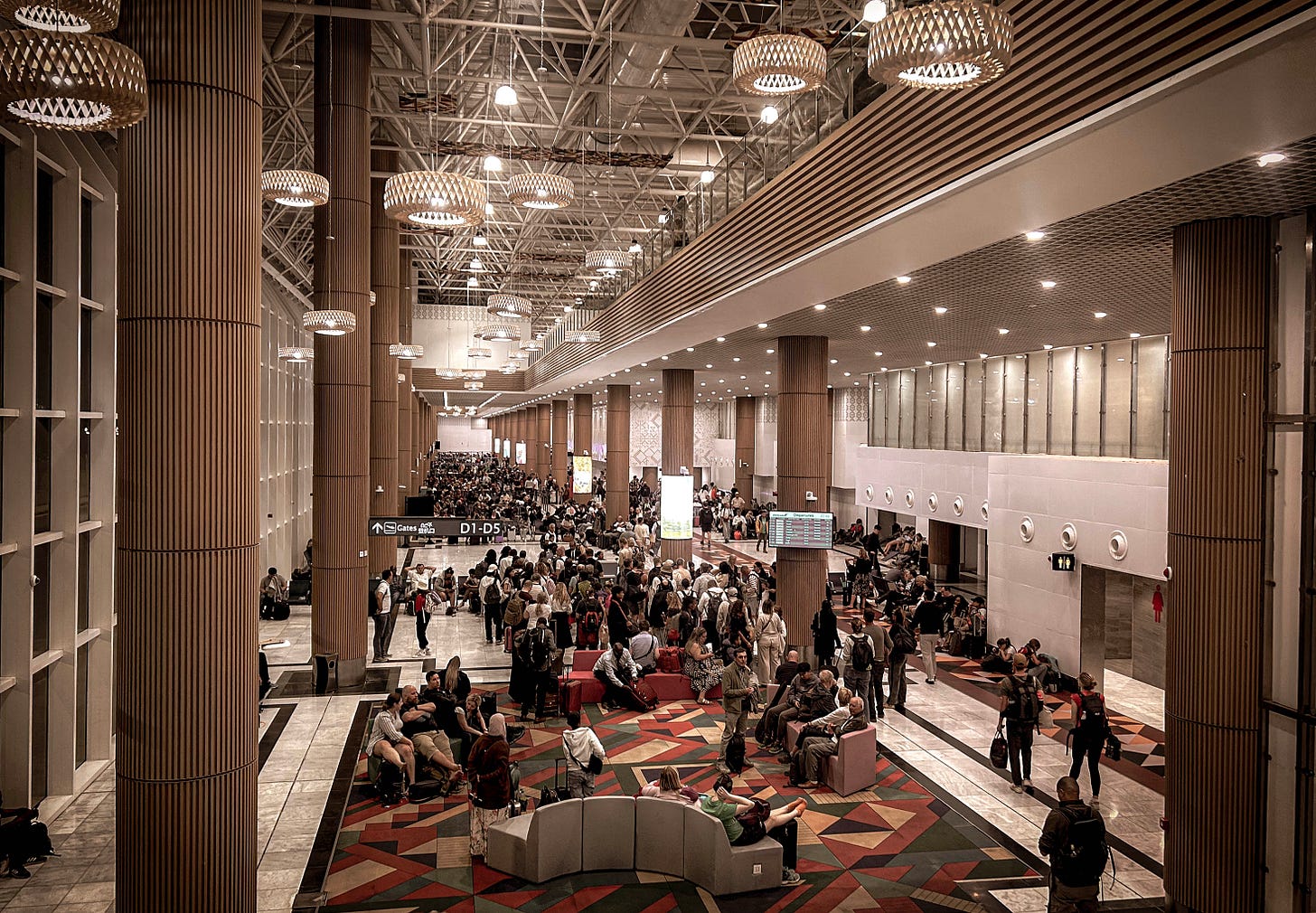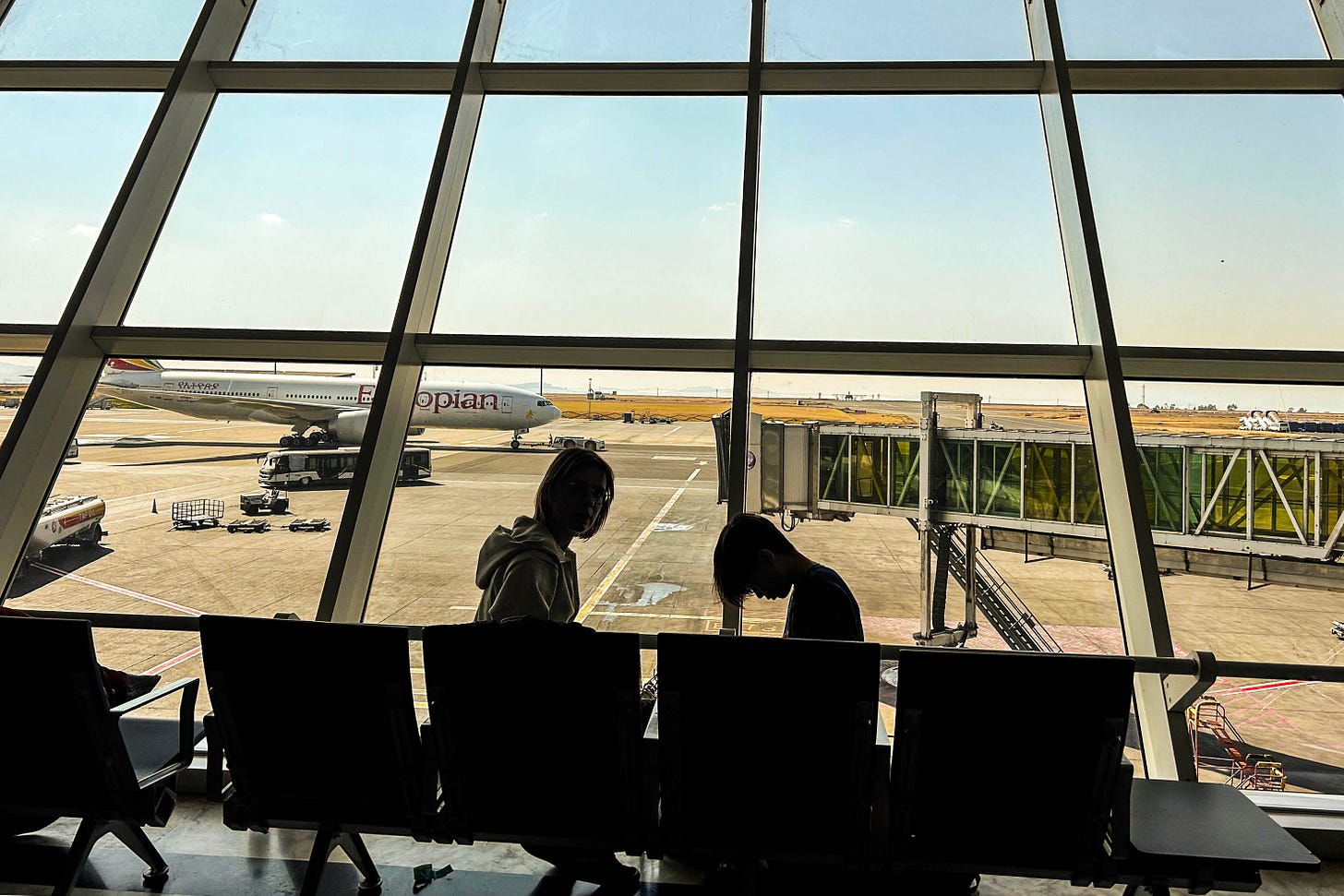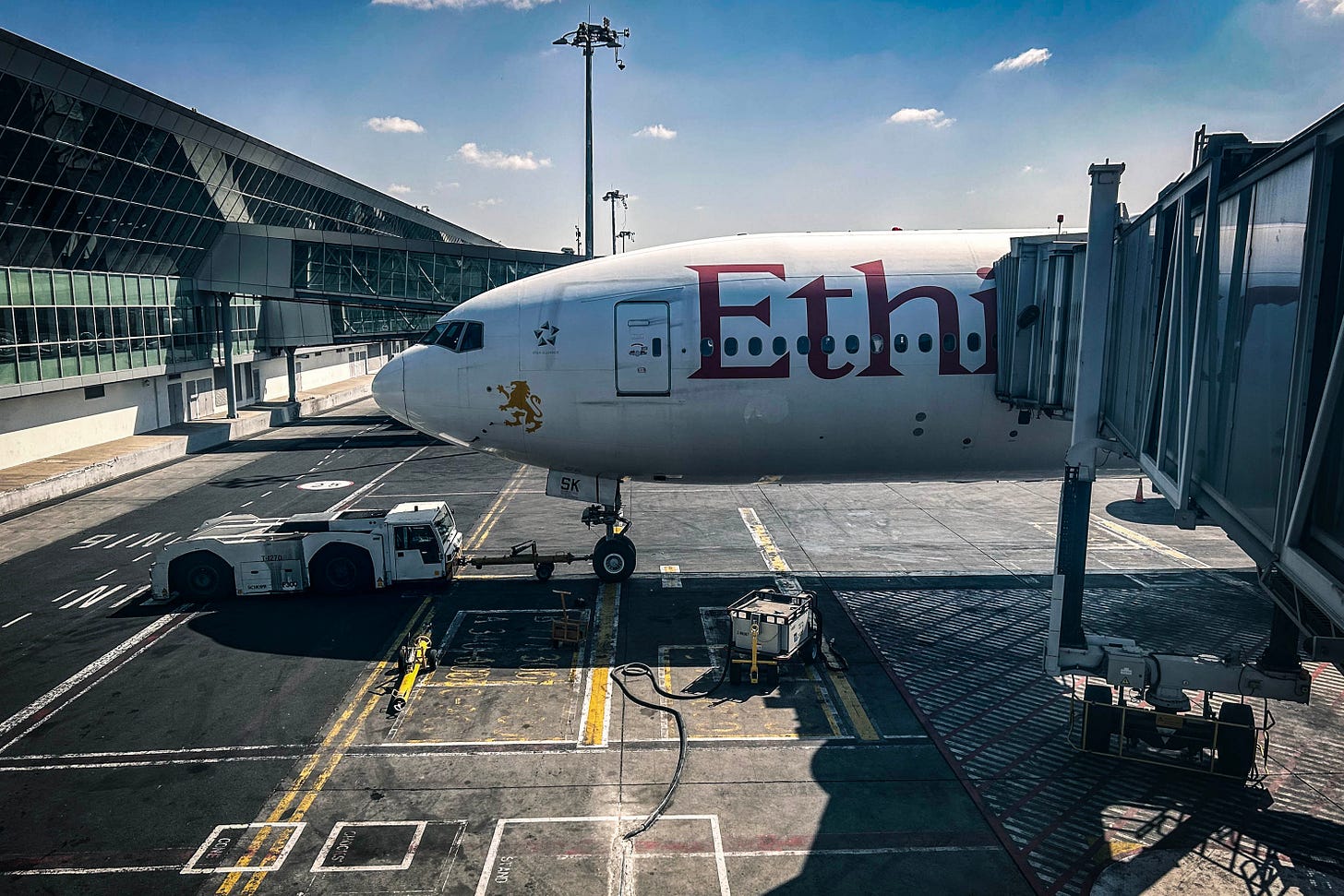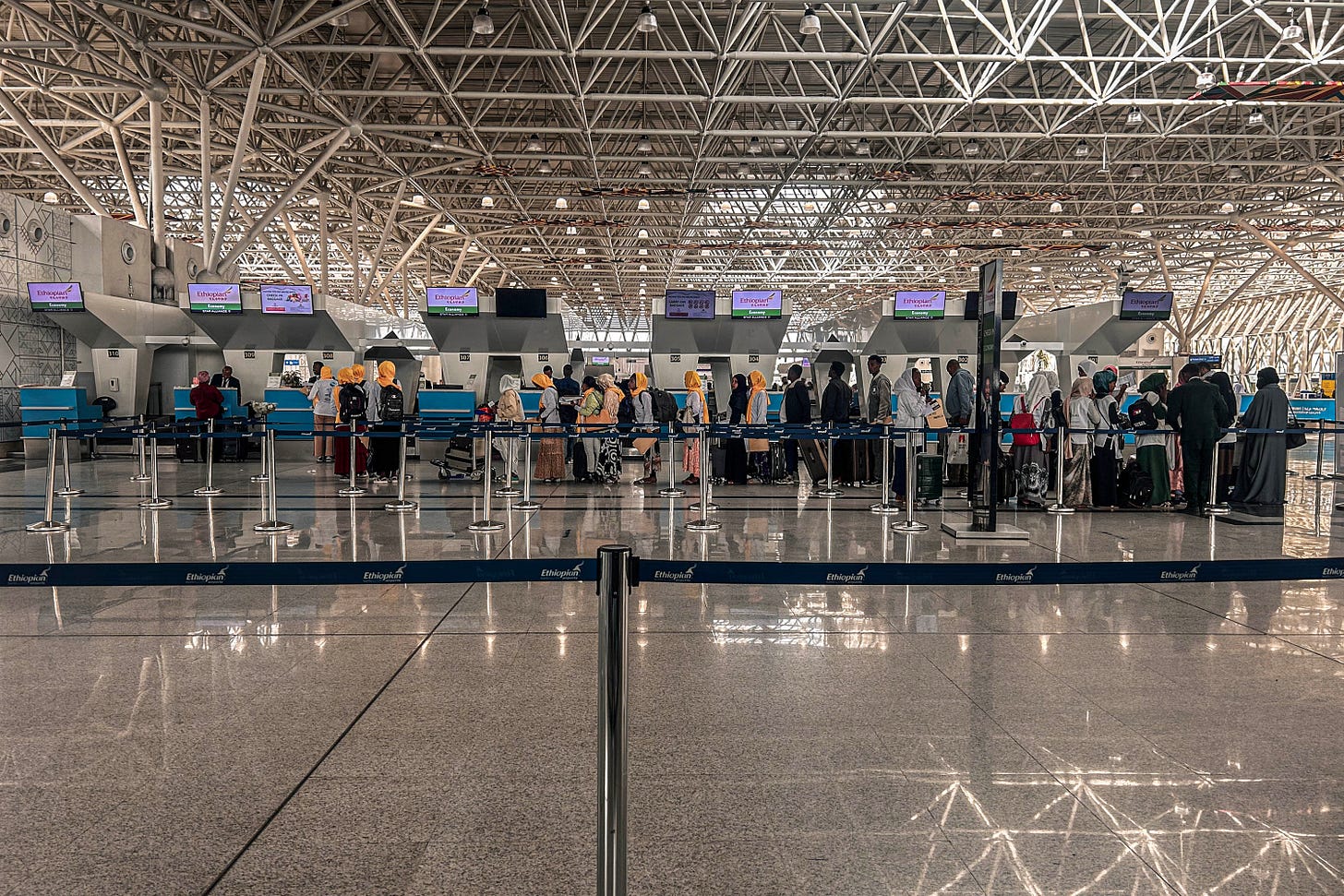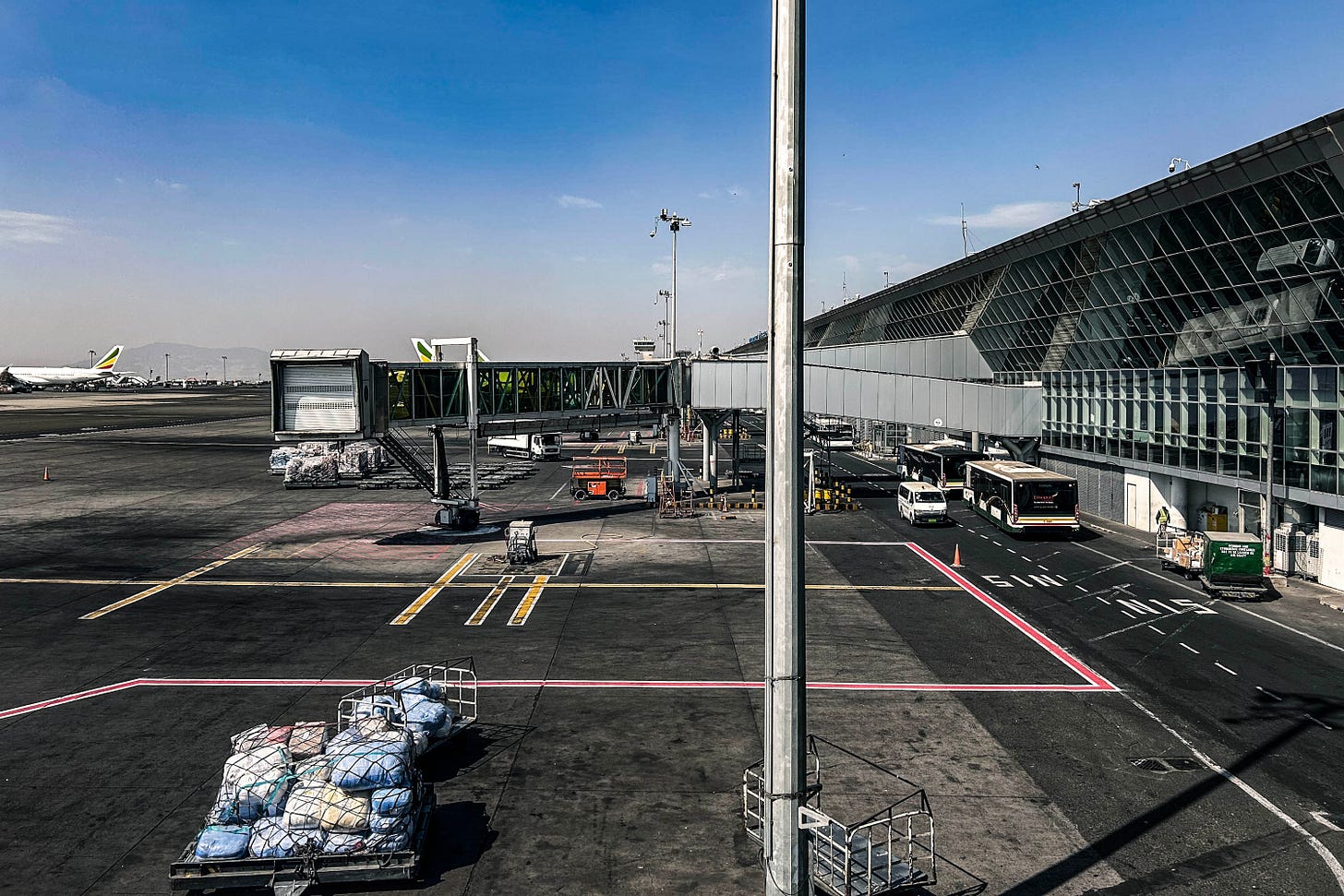Africa’s busiest airport has a drug problem
A Kenyan citizen was facing execution in Vietnam. Her horrific ordeal began with lax security at Addis Ababa’s Bole International Airport.
Samuel Getachew in Addis Ababa
Margaret Nduta, a 37-year-old Kenyan woman, was supposed to be executed in Ho Chi Minh City on Monday evening. She was convicted by a Vietnamese court of drug trafficking earlier this month.
After a frantic last-minute campaign, Kenyan diplomats succeeded in staying her execution. Much to the relief of her distraught family, she lives. For now. Her future remains unclear, with her family and human rights campaigners hoping to get her repatriated to Kenya.
Her journey into a Vietnamese jail cell appears to have started a little closer to home: at Bole International Airport in Addis Ababa. It was here, in July 2023, that her bag was first cleared to cross international borders. It was stuffed with nearly 2kg of cocaine.
Prior to heading into Africa’s busiest airport, Nduta – who says she was recruited online for a job in Vietnam – met up with her recruiter, “John”, in Addis Ababa. He apparently handed her a flight ticket, and a bag to deliver to the person receiving her on the other end. The bag cleared security checks at Bole and later Hamad Airport in Qatar, but was more thoroughly examined at Vietnam’s Ho Chi Minh City Airport, leading to Nduta’s arrest.
Drug trafficking through Ethiopia has been on the rise in recent years. Last year, in a rare admission, Ethiopia’s customs head Debele Kabeta told parliamentarians that trafficking had increased by more than two-fold that year. As Nduta’s case shows, Bole International Airport is one of the porous border points through which this trafficking is happening. A report by the United Nations Office on Drugs and Crime says it is becoming “a major trafficking hub for cocaine and drugs”.
Illicit hotspot
Bole is Africa’s busiest airport. It is built to handle as many as 22-million international travellers and two million domestic ones. But with traveller numbers pushing upwards in recent years, security lapses have increased. “Bole needs more trained staff, equipment and resources to help pay higher salaries to avoid corruption that is allowing many drug mules to pass through easily,” says John Wotherspoon, a Catholic priest. Wotherspoon runs a programme that supports Africans imprisoned on drug offences in Hong Kong.
As early as 2020, Wotherspoon was warning that Bole was becoming East Africa’s new hotspot for traffickers of illicit drugs and controlled wildlife products.
He has made frequent visits to Ethiopia’s capital, meeting officials, activists and even offering to raise funds to purchase scarce body scanners for the airport.
Bole’s lax security last came under the national spotlight in 2019 in a case similar to that of Nduta. A 28-year-old Ethiopian civil engineer, who had left the country through Bole, was facing capital punishment in China where he was arrested with narcotics in his luggage.
In the wake of this case, the Chinese embassy in Addis Ababa started handing out a booklet with each visa to warn travellers about the risk of carrying drugs to China. Ethiopia’s Prime Minister Abiy Ahmed promised there would be better security at Bole Airport, and signed a deal to import 400 sniffer dogs from The Netherlands to help identify drug mules.
It is unclear whether the dogs ever arrived.
“Bole does not have any sniffer dogs to assist us in our operation,” Abebe Tadesse, the chief inspector of the Addis Ababa Police narcotics department, told The Continent. “While we are catching drug mules regularly, we know there are many who are successfully proceeding to their next destination because we lack the tools to catch them.” The airport did not respond to questions.
While on-site checks remain insufficient, the government has taken a more controversial measure: profiling Nigerian travellers.
Amid reports that Nigerian drug traffickers were shifting their operations to Addis – following tightened security at airports in Kenya and Tanzania – Ethiopia stopped issuing visas on arrival to Nigerians in 2022, despite being a signatory to the African Union’s free movement protocol. The visa on arrival option is available to all other African citizens.
Nigerian travellers also often undergo extensive searches and inspection, despite evidence that traffickers tend to recruit their mules within the region.
Airport tax
While Bole remains porous for drug movers, it can be an extremely nerve-wracking airport for people who do not regularly travel internationally. Four years ago, Senait Hagos, having moved from the war-torn Tigray region of northern Ethiopia to Addis Ababa, went to Bole with a valid passport, a ticket and a visa for Dubai. She was trying to leave the country for work. It would take four attempts and a family heirloom to get through the airport.
Senait says that on her fourth try, she was placed in a small room with other adolescent girls who were heading to the United Arab Emirates for work, where she was advised to pay some form of predeparture fee. Legally, no such thing exists.
Senait says she handed over some of her belongings, including a gold chain that a family member had passed down to her, and the little money she was carrying. According to her, most of the other girls had nothing to offer and were denied departure.
Martha Senbete, a 24-year-old, had a similar experience. The Gondar native worked low wage jobs in Addis Ababa for four years to save enough to pay a middleman for a job in Dubai, and for passport fees that increased by 500% last year. Then at Bole she was turned away, allegedly because she was unable to pay the airport authorities for departure.
“For four years, I did the most demeaning jobs, including as a day labourer, domestic worker and maid, to afford a passport and an agent to find me employment only to be ambushed with another payment at the airport,” she says.
The payment allegedly demanded at the airport was equivalent to one more year of work in Addis.
Senbete has resigned herself to never making it out of Ethiopia.




